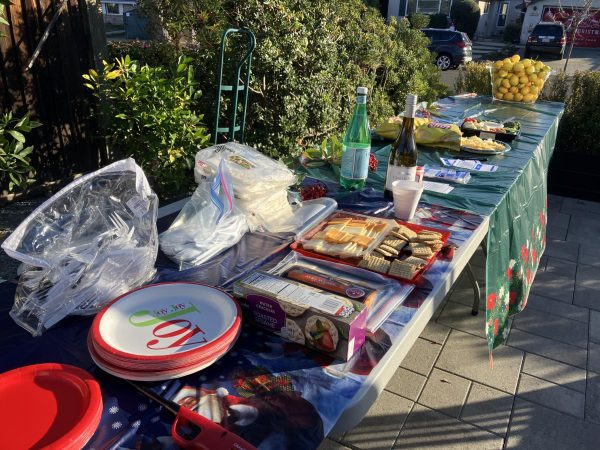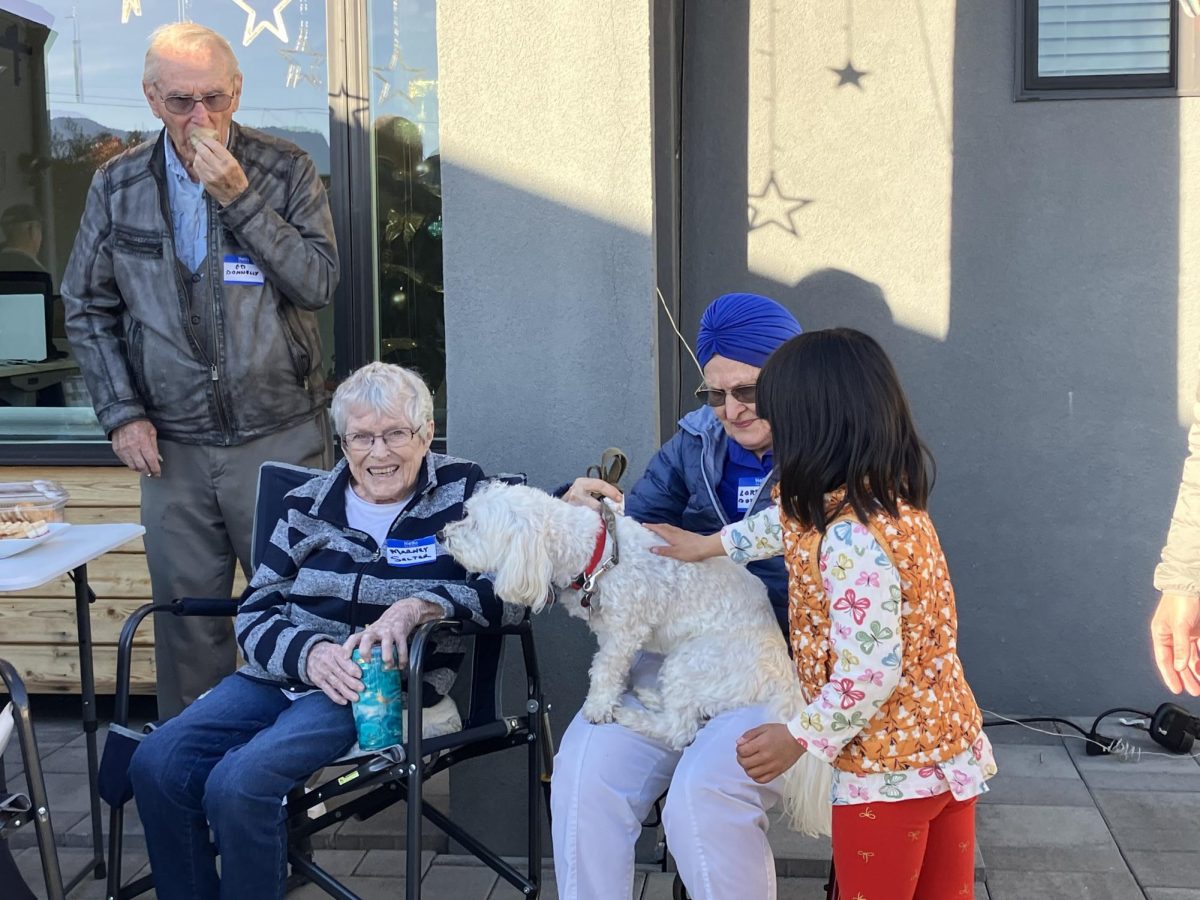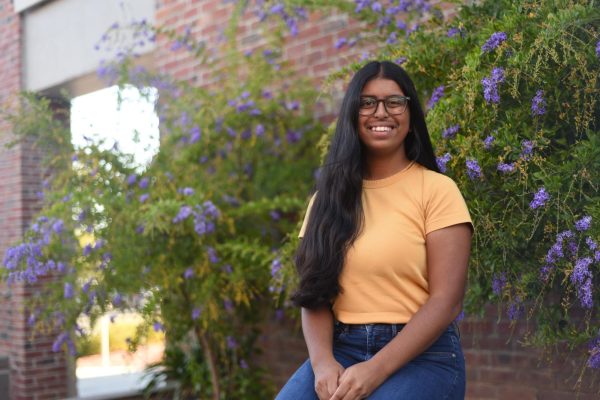The chorus of “Holly Jolly Christmas” floats among a group of about 15 neighbors gathered in a driveway on a Saturday afternoon. They stand in groups and sit on folding chairs, catching up over warm cider and refreshments. Their Christmas block party — one of several yearly get-togethers on Cupertino block leader Bruce Parsons’ street — is just getting started.
As a block leader, Parsons helps organize neighborhood events like the Christmas block party and maintains both a neighborhood contact list and a neighborhood watch program. He first took on the role about 10 years ago, when a burglary on his street spurred him and a neighbor to revive their neighborhood watch program in case of other incidents. From there, they saw block parties as a way to get people more connected and involved with the neighborhood community. However, Parsons notes that organizing a watch list or block party group requires not just time and effort, but persistence.
“Many people not only didn’t want to talk to me at the door, they didn’t want to accept any letters or give any of their information,” Parsons said. “Unfortunately for them, my middle name is perseverance. I wound up collecting everybody’s contact information, and I expanded it to get the name of their dog and the kind of car they have, and I put it all together in one big roster. Once you get to that point, everything else is easy.”
In light of the effort Parsons put in across multiple years to get his neighbors involved, he believes it broke down cultural barriers within the neighborhood. He recalls that as the demographics shifted from mostly white to more ethnically diverse in recent decades, there was an unspoken cultural barrier and a growing tendency for people to keep to themselves or associate within ethnic groups. Since they started having block parties, Parsons says he’s on speaking terms with nearly every family on the street.

“Originally, newer families absolutely would not look you in the eye,” Parsons said. “If you said good evening or good morning, they would not acknowledge it at all. They certainly wouldn’t talk to anybody they didn’t know. That has all changed. Having the block parties contributed to breaking down those social barriers, but it’s also time — people get used to slightly different customs.”
Junior Elspeth Luu contrasts this with her neighborhood, saying that her neighbors don’t organize events or talk to each other very much, but they are active in responding to safety concerns. She remembers her neighbors pitching in to help each other with household chores when they’re out of town and sharing security camera footage whenever there’s suspicious activity.
Similarly, Cupertino block leader Steve Hill has noticed that it’s harder than in previous years to get people to come to his neighborhood’s yearly block party despite relatively consistent announcements and neighbors’ involvement in the neighborhood watch program. He attributes this shift to people spending more time indoors rather than on outdoor activities like gardening.
“The people are social when they get together, but the neighborhoods have evolved to the point where people stay indoors all day and on the weekends,” Hill said. “I think it’s more of a cultural change in society as opposed to people being outright antisocial. Texting and email have replaced actual face-to-face conversations, and that kind of communication is leading to a decline in socialization and community cohesion. It’s like there’s an atrophy in social skills — I don’t know if anything can bring it back.”
Still, Hill tries to encourage attendance at block events by giving important announcements at block events, such as information about the traffic signal changes on the intersection of McClellan and Bubb. Ultimately, he acknowledges that a tight-knit neighborhood community just isn’t a priority for many people anymore, a sentiment Luu partially agrees with. While she enjoys carpooling with her neighbors and fondly recalls celebrating Christmas with them several years ago, she says her neighborhood still isn’t her main community. She prefers instead to maintain friendly relationships with her neighbors and attend more city and school events.
“It’s good to get to know your neighbors, but Cupertino itself just has a lot of events that the whole city can go to,” Luu said. “Some neighborhoods have a homeowners’ association, but mine doesn’t, and I feel like that’s keeping a nice balance between finding community but not having strict rules and regulations — I don’t like the uniformity.”
Parsons adds that with more working and less time involved in other community organizations such as religious or volunteer groups, it’s increasingly important to become, at the very least, friendly acquaintances with neighbors. He sees the unique support a neighborhood community provides as its main benefit — whether it’s for a watch program like Hill’s neighborhood, carpooling like Luu’s neighborhood or some other arrangement.
“There are a wealth of experiences and talents on this street,” Parsons said. “So it’s nice to know where to go and to not be afraid to call people if you need it.”










